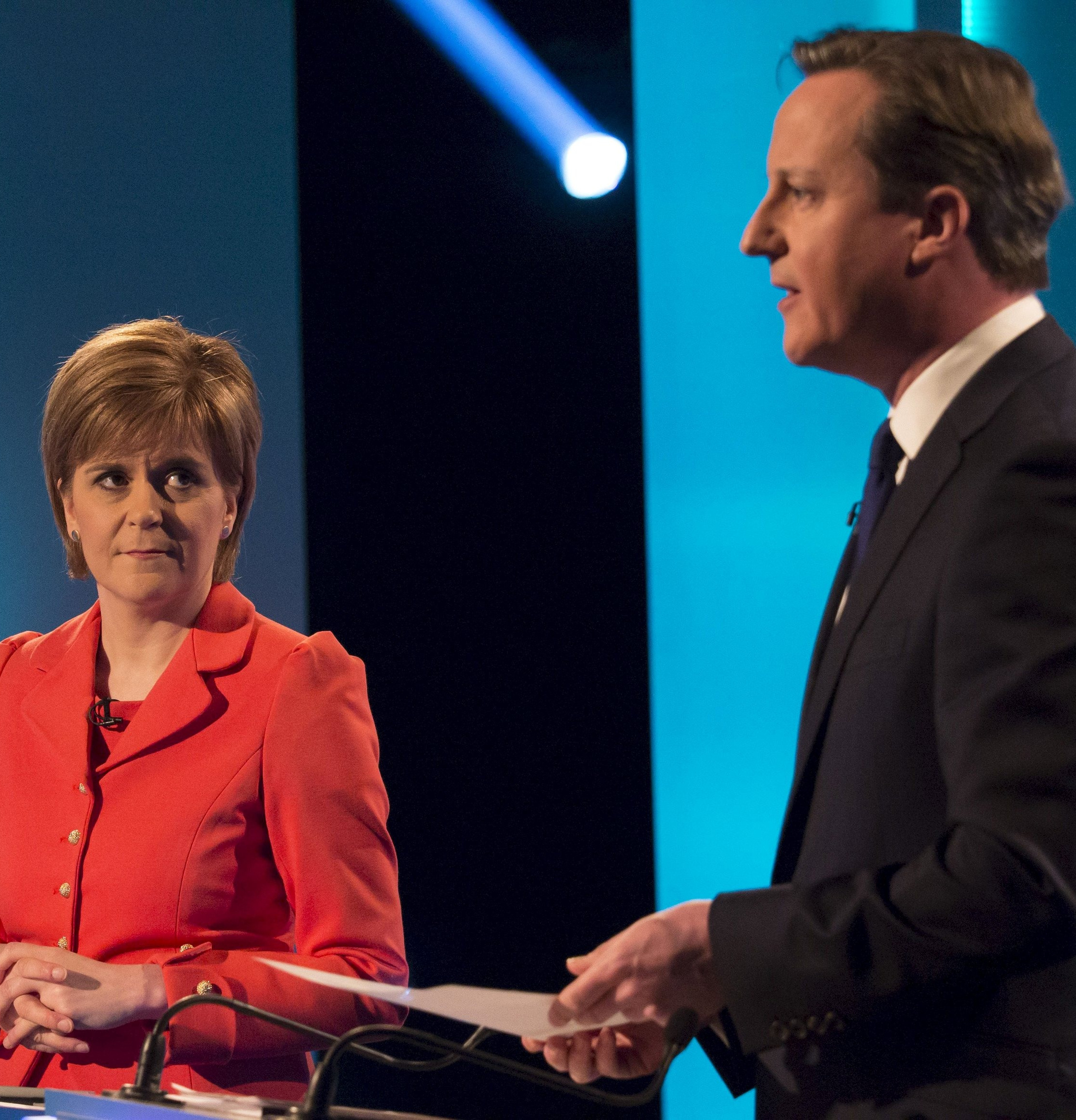No big winners or losers in Britain’s historic seven-way TV election debate
Britain’s economy may be growing, but the main televised leaders’ debate of its election was held in the shadow of the Great Recession. The economy, and the economic effects of immigration, dominated a showdown between Conservative Prime Minister David Cameron and six rivals: Labour Party leader Ed Miliband and chiefs of the centrist Liberal Democrats, right-wing U.K. Independence Party, Welsh and Scottish nationalists and Greens. Britain’s political landscape is at its most fragmented in decades, and polls suggest no party will get a parliamentary majority on May 7. So the two-hour debate saw all the leaders battling for an edge.
Five years ago this country was on the brink. Let’s stick to the plan that’s working.
UK Prime Minister David Cameron
No one made a disastrous gaffe, and all the leaders can claim to have achieved at least some of their goals. Cameron largely avoided unstatesmanlike bickering. Miliband, often criticized as cerebral and awkward, delivered his points clearly. Nigel Farage, easily the noisiest participant, made his anti-EU views and what he called UKIP’s “plain-spoken patriotism” heard loud and clear. Sturgeon of the Scottish nationalists and Wood of Plaid Cymru (the Party of Wales) — both potential kingmakers if the election result is close — appealed to their home constituencies and held their own on wider issues. And Natalie Bennett of the Green Party outlined a set of alternative-sounding policies on issues beyond the environment.
Britain succeeds when working people succeed, but that’s not the way it’s been for the last five years.
Leader of the Labour party, Ed Miliband

Politics leadersdebate